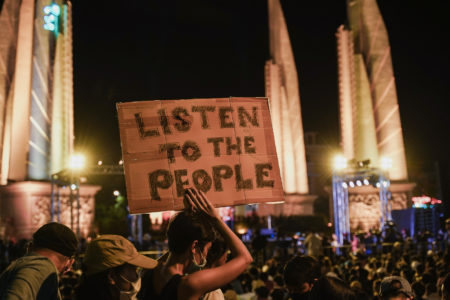
As a former university professor, and as a historian of higher education, I’m gratified (mostly) by the vigilant defence of academic freedom proffered by journalists and others in the wake of the Andrew Potter episode at McGill University. Academics who speak or write controversially should be protected, not sanctioned.
Still, there is too little understanding of what academic freedom means. It is not absolute and it is not the simple equivalent of “freedom of speech.” All citizens have, or should have, the latter, but only individuals who have specified educational and professional qualifications are entitled to academic freedom within universities. In the words of the Canadian Association of University Teachers (CAUT), they are granted the “freedom to teach and discuss; freedom to carry out research and disseminate and publish the results thereof; freedom to produce and perform creative works; freedom to engage in service to the institution and the community; freedom to express one’s opinion about the institution, its administration, and the system in which one works.”
This may seem relatively straightforward but there are and have always been constraints on an academic’s freedom and autonomy, some justifiable and some not. Scholars in medieval Europe were encouraged to engage in intellectual “disputations” so long as they did not challenge the authority of the Catholic Church. Following the Reformation, Protestant universities broadened the scope of religious study, but they would not hire non-Christians or women to their faculties. Through to the 1960s, Canadian professors who criticized their universities’ presidents, board members, or prevailing governments risked dismissal. There were numerous cases of academic repression during the McCarthy era. The protocols on academic freedom of the American Association of University Professors (AAUP), like those of the CAUT, arose from campaigns designed to end permanently such politically fraught actions.
But academic freedom is still limited by values and practices that are entirely defensible. Professors cannot simply teach anything they want. Courses must be vetted and approved by departmental committees composed of one’s colleagues, and to get one’s course on the books a professor may have to alter the content. Furthermore, to satisfy student or programmatic needs, faculty may be compelled to teach courses they would rather not.
The application of academic freedom is not simple, and the constraints around it change over time.
As part of their professional responsibility, faculty are no longer permitted to humiliate students, sexually harass their colleagues, or use racist language. Standards of ethical and professional behaviour evolve, and the practice of academic freedom adapts. Around such controversial cases as that of Jordan Peterson at the University of Toronto, who has refused to use unconventional, gender-neutral language to avoid offending transgendered people, the adaptation is ongoing and rocky. Universities have yet to satisfactorily resolve this matter because the application of academic freedom is not simple, and the constraints around it change over time.
Consider the fact that faculty cannot publish anything and everything they research and write. They are subject to peer review, and their voices could well be muted by assessors and journal editors who, theoretically, are the gatekeepers of scholarly standards. Journals themselves may have certain conceptual or traditional orientations unfriendly to the work of new or innovative scholars. Peer review is central to the world of academic publishing, but the process is far from foolproof, and in the age of the Internet, where bogus journals abound, sustaining meaningful standards is harder than ever. It remains to be seen how this will affect the exercise of academic freedom.
This gatekeeping role, incidentally, is not unlike that of newspaper and magazine editors who reliably denounce all forms of censorship but who decide, day in and day out, what articles to solicit, publish or reject. My right to free expression does not oblige the proprietor of this magazine to publish this or any other piece I write. Does this mean that owners and editors enjoy greater freedom of speech than the rest of us, including their own employees? They edit the words of their reporters and columnists and they would not, or should not, tolerate writers who conduct shoddy research, berate readers or write tastelessly. Nor do their employees have the freedom to criticize in print or on air, or otherwise embarrass, the organizations for whom they work.
And here is where the Andrew Potter case is more complex than most writers on the subject would have us believe. Faculty, as the CAUT guidelines indicate, have the right to publicly criticize their administrations without fear of losing their position, and I can think of no other workplace where this is the case. While we enshrine freedom of expression in the Charter of Rights, we do not actually mean that employees have that right on the job. University administrators certainly don’t. Deans and vice-presidents, for example, have broader institutional responsibilities than faculty members, and if they publicly condemn their presidents, or discredit their universities, they can expect to be removed. But critics who come from the ranks of the faculty will not be fired. They will return to the professoriate, normally protected by tenure.
Some positions in the university have both administrative and academic functions. Department chairs teach and research but also carry out certain managerial tasks. Faculty members may also head institutes designed, in part, to raise the university’s profile in the community and to facilitate informed dialogue about important social issues. McGill’s Institute for the Study of Canada has that role, and Andrew Potter, its former director, wrote, by his own admission, a substandard article for Maclean’s that scarcely contributed to constructive discourse about Quebec society. As a scholar with academic freedom, he should be forgiven for this exceptional lapse, but as an administrator arguably he should not. Different standards apply to the two roles, and professors’ privileges do not include the right to hold administrative positions or head institutes.
Academic freedom is a vital, enduring principle without which higher learning cannot effectively thrive. Its intricacies deserve to be understood, and not only by academics.
Photo: Shutterstock.com
Do you have something to say about the article you just read? Be part of the Policy Options discussion, and send in your own submission. Here is a link on how to do it. | Souhaitez-vous réagir à cet article ? Joignez-vous aux débats d’Options politiques et soumettez-nous votre texte en suivant ces directives.






